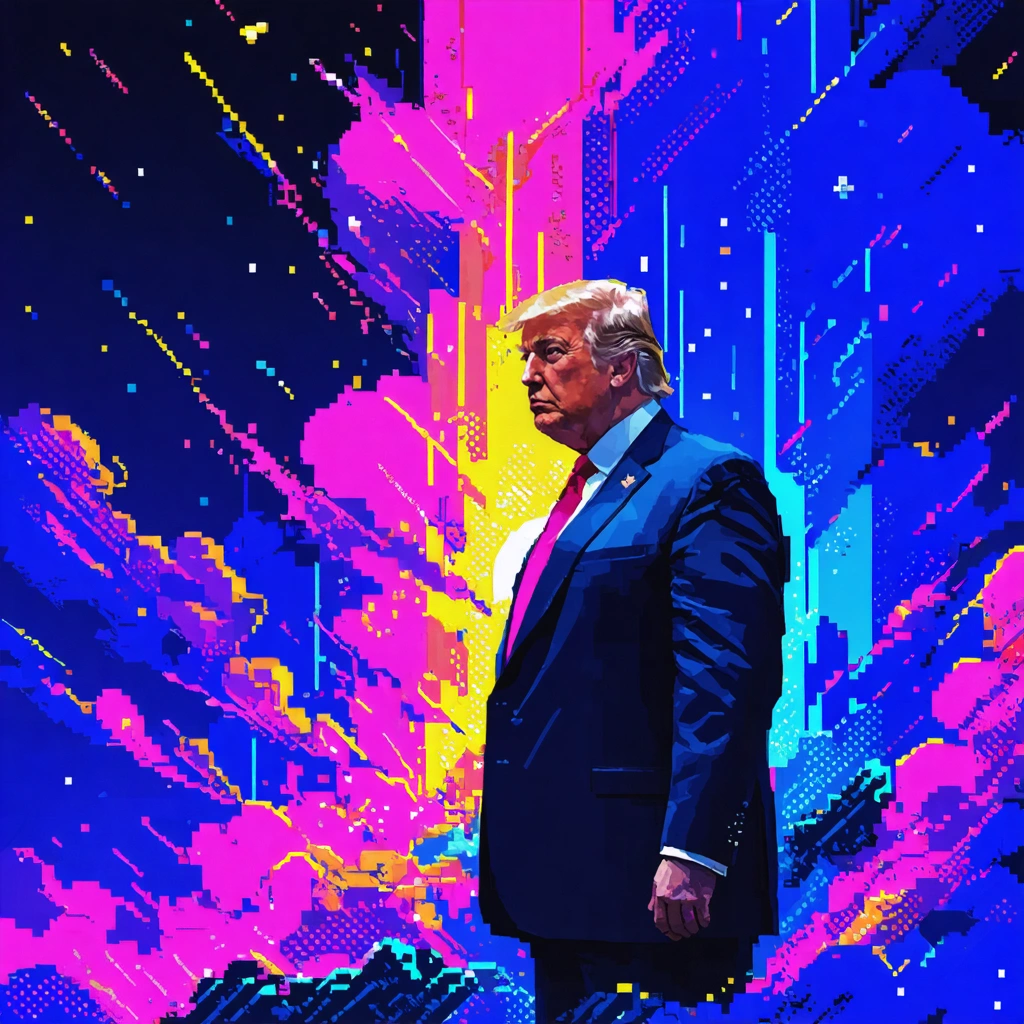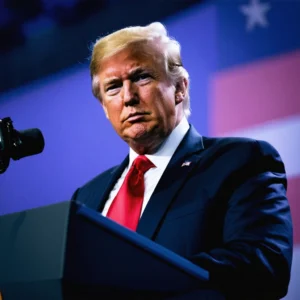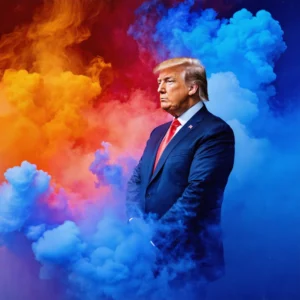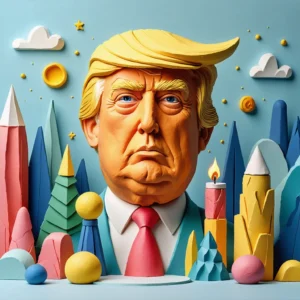
Introduction
America finds itself at a pivotal juncture, and many columnists believe that the nation has entered an era of profound transformation. In recent months, observers have witnessed shifts in policy, rhetoric, and national mood. Moreover, influential voices argue that changes spearheaded by former President Trump have accelerated a process of national regression. Consequently, the debate intensifies regarding whether these developments signal a decline or a restructuring of American values. With this article, we delve into the analyses of four prominent columnists who explore Trump’s legacy and question America’s future trajectory.
Trump’s Legacy and Its Controversial Impact
Critics and supporters of Trump alike watch as his influence manifests in unexpected ways. For example, various political, social, and economic indicators suggest that the country experiences shifts in dimensions that historically have defined American strength. Furthermore, each columnist provides a distinct narrative. Some claim that policies once considered fringe now define everyday political discourse. However, others caution that internal disagreements and ideological divides pose long-lasting risks. In addition, observers maintain that turbulent rhetoric and policy inconsistencies contribute to the ongoing national debate.
Columnist Perspectives: Diverging Views
The four columnists, each with their own distinctive background, converge on several themes while offering divergent interpretations. Listed below are key points voiced by these experts:
- Economic strategies have evolved, and critics argue that deregulation may lead to unexpected downturns.
- Social policies have shifted focus, particularly regarding immigration and national identity.
- International relations display signs of skepticism and retrenchment rather than global leadership.
Moreover, these points provoke an urgent question: Is America reinventing itself for better or for worse? Each writer punctuates their argument with historical comparisons and future forecasts that spark vigorous debate among readers.
The Narrative of Regression and Renewal
In a narrative style that combines historical reflection with forward-looking inquiry, the columnists use rich storytelling techniques. They assert that America appears to be walking a fine line between regression and renewal. Hence, the debate centers on whether Trump’s political style has deconstructed traditional norms or revitalized a form of populist democracy. In addition, they urge citizens to reexamine what constitutes progress under challenging circumstances. Notably, some argue that populist rhetoric creates an emotional connection that bypasses established institutions. Consequently, readers find themselves reflecting on a future that might look drastically different from the past.
Analyzing Policy Changes and Social Dynamics
Analysts stress that policy changes affect social dynamics in ways that reshape everyday life. For instance, economic deregulation and shifts in trade agreements reflect aspirations to restore American strength. However, critics emphasize that these shifts also deepen socioeconomic inequalities. Notably, the columnists detail numerous instances in which regulatory rollbacks led to short-term gains but triggered long-term concerns. Additionally, vibrant debates emerge around topics such as healthcare, education, and environmental protection. In light of these discussions, stakeholders at every level of society must evaluate if the strategies implemented will ultimately revitalize national systems or erode foundational pillars.
| Issue | Claimed Benefit | Potential Downside |
|---|---|---|
| Economic Deregulation | Increased business agility | Risk of widened income inequality |
| Immigration Policies | Enhanced national security | Social fragmentation |
| Foreign Policy Stance | Prioritization of national interest | Isolation from international collaborations |
Economic Implications and Societal Shifts
The economic landscape indeed changes under the influence of new policies. Analysts observe that deregulation may boost short-term profits, and market volatility increases. In addition, critics warn that rapid changes might destabilize established economic institutions. Consequently, businesses prepare for uncertainty, and communities brace for potential hardship. Moreover, historical evidence reinforces the notion that drastic policy shifts often bear unforeseen consequences. Therefore, armed with both optimism and skepticism, columnists urge caution while emphasizing the need for resilience. In a series of numbered points, they summarize the economic challenges:
- Policy deregulation leads to rapid changes in market dynamics.
- Short-term successes often mask long-term systemic risks.
- Communities require robust safety nets to address economic shocks.
Political Polarization and the Future of Democracy
Political polarization grows as rhetoric becomes more combative. Moreover, social media accelerates divisive messages by propagating extreme views. Columnists describe political polarization as both a symptom and a cause of America’s changing identity. Furthermore, they explore how these divisions might affect the future of democracy. For instance, traditional democratic institutions undergo scrutiny even as grassroots movements surface. As a result, civic engagement expands while established norms encounter resistance. In addition, columnists employ compelling narratives to illustrate that each decision holds transformative potential for the nation’s path.
Key Factors Influencing Political Change
Observers enumerate several decisive factors impacting American political life. Listed here are a few influential elements:
- Partisan media and echo chambers that amplify extremism.
- Economic anxiety that fosters populist sentiment.
- Cultural shifts that redefine national identity and priorities.
Additionally, each factor intertwines with broader societal trends, urging readers to consider the cumulative impact of these changes. In light of these insights, the analysis stresses that uninterrupted change leaves little room for return to past paradigms.
Cultural Shifts and the Transformation of National Identity
Cultural shifts also shape the current narrative about America’s future. Writers highlight that debates about identity, history, and tradition consume public discourse. Moreover, they emphasize that cultural transformations often serve as both catalysts and consequences of political upheavals. Consequently, community identity evolves in unexpected ways. Each columnist accounts for shifts in national pride and symbolism while urging a comprehensive view of America’s evolving narrative.
Observations on Changing National Symbols
Authors point to several national symbols undergoing reinterpretation. For instance:
- Historic monuments gain new meanings as society reexamines its past.
- Flag imagery and national emblems become subjects of fierce debate.
- Civic rituals and public celebrations reflect changing values.
These examples illustrate how deeply intertwined cultural narratives influence policy-making. Indeed, readers must stay attentive as symbols transform gradually. Meanwhile, the dialogue continues to fuel an evolving understanding of America’s national identity.
Historical Perspectives and Future Projections
Throughout history, significant shifts have repeatedly redefined American ideals. Encouragingly, columnists use historical analogies to draw lessons from the past. They compare current events with previous periods of turmoil, such as the reform movements of the 1960s and economic crises of past decades. Clearly, such comparisons help illuminate potential future paths. Additionally, depicted scenarios range from radical reversals to gradual reinvention. Subsequently, readers enjoy a nuanced perspective on a country at a crossroads. Additionally, narratives incorporate reflections on cultural resilience and democratic renewal.
Timeline of Past and Predicted Events
| Era | Characteristic Change | Implication |
|---|---|---|
| 1960s | Social reform and civil rights | Long-term redefinition of equality |
| 1980s | Economic liberalization | Market-driven innovation |
| 2020s | Polarized politics and cultural debates | Mixed outcomes for democracy |
The Road Ahead: Challenges and Opportunities
As the nation progresses, columnists agree that the road ahead bristles with challenges and opportunities alike. For instance, increased political activism may foster innovation and reform. Conversely, unchecked polarization threatens to undermine trust in institutions. Therefore, leaders and citizens must collaborate closely to navigate these turbulent times. Moreover, strategic foresight and proactive dialogue remain essential as the country evolves. In summary, comprehensive reform and adaptive strategies may help mitigate risks while capitalizing on opportunities.
In conclusion, the narrative surrounding Trump’s influence and the broader debate on America’s future remains as complex as it is urgent. Moreover, the four columnists provide diverse yet intertwined perspectives that compel readers to consider the long-term implications of current policies. Consequently, the United States stands at a transformative crossroads: Will the nation embrace innovative change and restoration of core values, or will it spiral deeper into regression? Ultimately, these questions provoke deep introspection and invite continued dialogue among citizens, analysts, and policymakers alike.




